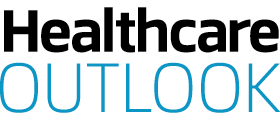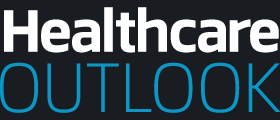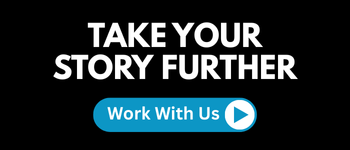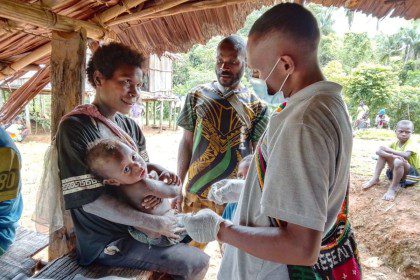A GoFundMe campaign can be more than simply helping a patient get medical treatment; it can shape public views on healthcare. Krystallia Moysidou, Lecturer in Information Systems at the University of Sussex Business School, explains.
THE INEQUITABLE IMPACT OF CROWDFUNDING
GoFundMe, to which hundreds of thousands of people turn for help with medical and other healthcare-related costs, may well inspire acts of kindness, but have much larger societal impacts.
As a remedy to insufficient healthcare insurance and systemic failures, medical crowdfunding rapidly became institutionalised as part of the US healthcare financing landscape; even doctors and medical institutions advise patients to set up crowdfunding campaigns to bankroll their health-related costs.
However, despite initial optimism about its potential to increase equality and democratise healthcare funding, medical crowdfunding currently amplifies already existing social and health inequities in the US.
Rather than providing a safety net for traditionally underrepresented groups, platforms like GoFundMe fail to benefit those who are most likely to need support – underinsured and uninsured individuals of low socioeconomic status, non-English speakers, and older people or patients with costly chronic conditions.
Instead, by amplifying individual choices in determining who gets financial support for health-related problems, they introduce ample room for biases, judgements, and discrimination. This can be exacerbated by platform dynamics, algorithms, and data ownership practices.
Moral judgements of people’s lifestyle and choices, often associated with political orientation, affect who receives medical support. Patients with chronic or complicated conditions, or ailments that are perceived as the result of risky, dangerous, or irresponsible behaviours (like smoking or sexual activity), appear less deserving and are less successful in financial terms.
Thus, human crises brought about by structural violence, which are often complex, multiplicative, and chronic, do not fit crowdfunding logics and are least likely to be adequately ameliorated by it.
“As a remedy to insufficient healthcare insurance and systemic failures, medical crowdfunding rapidly became institutionalised as part of the US healthcare financing landscape”
Krystallia Moysidou, Lecturer in Information Systems, University of Sussex Business School

IDEOLOGICAL DIVIDE
Despite abundant empirical evidence that medical crowdfunding functions as a system of socially mediated abandonment, public views on medical crowdfunding in US healthcare are mixed.
A recent study conducted by myself and Dr Cohen-Chen from the University of Sussex reveals that Americans’ views on medical crowdfunding promoting equality are negatively associated with political orientation. Specifically, conservatives were found to perceive medical crowdfunding as a valid part of the US healthcare system and more positively than a universal healthcare system.
On the contrary, liberals saw it as undermining structural reform, hindering a system of universal and affordable healthcare (which they perceived as a negative thing). Interestingly, conservatives in the US perceived for-profit platforms like GoFundMe as a more favourable and equitable alterative than a universal healthcare system, ignoring empirical evidence that proves the opposite.
Those results on conservatives’ positive view of medical crowdfunding come as no surprise. Hitherto, US health policy has been consumed by an ideological divide between conservative and liberal viewpoints.
The liberal perspective views healthcare as an equal, even basic right, and favours the implementation of that right through a social insurance system that provides universal health coverage, equitable financing, and a commitment to equality in healthcare.
The conservative perspective advances a vision for a healthcare policy that would reduce costs and expand consumer choice by boosting access to more flexible insurance options, and opposes healthcare reform for a publicly financed, single-payer universal system.
IMPEDING CHANGE
Medical crowdfunding reflects powerful neoliberal values and embodies what conservatives envision as an alternative to a comprehensive national healthcare system. It promotes case-by-case decision-making in healthcare, as well as a reliance on friends, family, or the kindness of strangers for access to healthcare.
More from Healthcare Outlook
Additionally, it narrates a misleading story that if we work hard and show deservingness, which is judged differently based on various factors, we can gain access to healthcare through crowdfunding.
This might normalise the idea that citizens are entitled to healthcare based on merit, deservingness, and status, an approach that sees the care of those who are undeserving as an unnecessary burden and constitutes a hindrance to attitudes conducive to change in the US healthcare system.
In addition to favouring marketisation, individual choice, and limited government oversight in healthcare provision, medical crowdfunding appears to impede change in the US healthcare by employing narratives that render the need for fundraising as unpredictable and universal.
Both platforms and campaigns uniformly attribute financial distress to the bad luck and unforeseen medical emergencies of patients, discounting the view that fundamental changes in the US healthcare system could address the need for medical crowdfunding.
As those narratives redirect public attention away from the injustices of the US healthcare system and disguise the underlying causes of insufficient access to medical resources, medical crowdfunding can be expected to promote social stability over change and minimise the impetus for collective action intentions for healthcare reform in the US.

INDUCING ATTITUDES
In contrast, medical crowdfunding may facilitate change by inducing attitudes that support healthcare reform when it adopts narratives that spread awareness about the structural problems in the US system.
Specifically, politicised narratives that bring public attention to persistent conditions of austerity, deep gaps in the social safety net, and growing health inequities can be expected to induce attitudes and intentions conducive to social change in US healthcare.
Experimental results provide empirical evidence on this and confirm that crowdfunding platforms have the power to shape public perceptions about the politics of health, provided that appropriate narratives are being adopted.
Specifically, Dr Cohen-Chen and I tested how current narratives in medical crowdfunding (attributing financial distress to the bad luck and unexpected emergencies of patients) versus politicised narratives (explicitly describing the system as unjust) affected participants’ social attitudes in the context of US healthcare.
Our analyses showed that directly blaming the need for crowdfunding on an unequal healthcare system had different effects depending on participants’ political orientation. The criticism increased collective action intentions for healthcare reform for conservatives (through increased efficacy), but did not have the same effect on liberals, possibly because they already held high collective action intentions for healthcare reform.
Thus, politicised narratives in medical crowdfunding can make those who self-identify as conservative challenge the status quo and act collectively for healthcare reform in the US, but only when campaigns adopt them.
OPEN DIALOGUE
Considering the challenges surrounding US healthcare reform and the severe effects it could have on population health, health inequalities, and social cohesion, these insights make a valuable contribution towards facilitating an open dialogue on reforming healthcare, which is one of the biggest political and polarised issues in the US.
As the study confirms, by presenting medical hardship directly as the responsibility of the system, medical crowdfunding platforms can go beyond offering partial and short-term instrumental and emotional help.
Interestingly, they can induce social attitudes conducive to change in groups that traditionally support the status quo and are not open to social change and system-challenging attitudes.
This is particularly important considering that conservatives are more difficult to mobilise against the status quo in US healthcare.
Although the data does not speak directly to macro-level matters and does not confirm that politicised narratives in medical crowdfunding lead to structural change in US healthcare, we have provided evidence that medical crowdfunding can shape intentions to act collectively for healthcare reform, which may predict individuals’ actual behaviour.



















